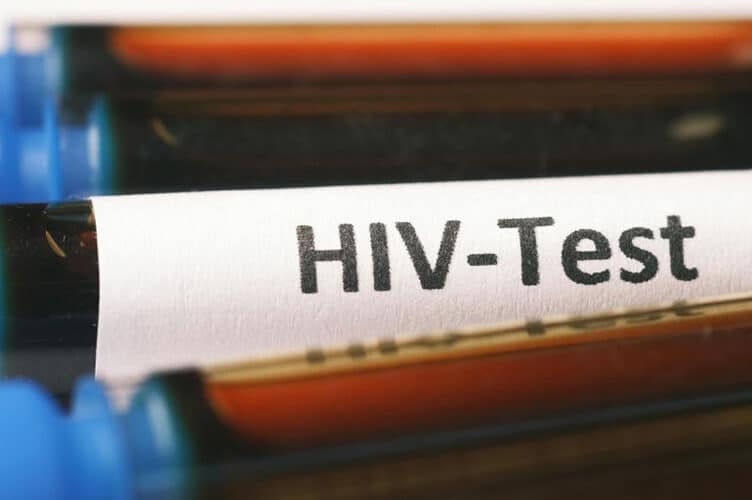IF we’ve learned anything from YA Dystopian fictions and movies, it’s that the doomsday is just another Tuesday.
But let’s be real— most of us are more prepared to go viral than to go off-grid.
We might have survived the Y2K conspiracies, the 2012 doomsday theories, and the absolute horror of Instagram changing its picture-size. But when it comes to facing an apocalypse, what do we really know? No WiFi, no iced coffee, and the worst of all— no memes.
Terrifying, right?
Don’t panic. We’ve scoured Reddit to find answers and to compile the ultimate Gen Z guide to the apocalypse.
Strap in, besties. It’s time to swap doomscrolling for actual doomsday survival—because if anyone can make the apocalypse aesthetic, it’s Gen Z.
Tip 1: Learn Basic Survival Skills (a.k.a. Don’t be useless)
Google makes our lives easier. But too bad— in this apocalyptic scenario, there’s no access to the internet (Dun! Dun! Dun!).
If your survival strategy is “I’ll just look it up” then, congrats! You’re doomed.
When disaster strikes, your phone battery is dead, and there’s no WiFi around, you will have to rely on your basic skills.
Can you start a fire without a lighter? Do you know which of the plants around you are safe to eat and which will turn your stomach into a war zone? Do you know how to hunt for food?
If your answer to any of these is “uhhh”, then it’s time to start learning. The apocalypse doesn’t come with a tutorial mode. You either adapt or you become a cautionary tale.
So, where do you start? Well you can take a survival course, but if that is not possible, then there are things around you which can help.
For example, you can utilize Youtube to learn how to tie knots and navigate with a GPS. There are also Youtube videos and cable channels that offer episode guides on survival, hunting, self-defense, and emergency preparedness.
You can also read survival books that offer guides on these things! You can learn things about first-aid, edible plants, and many more.
The key is to know more before everything goes south. Learn from Katniss Everdeen— knowledge increases your chances of making it through.
Tip 2: Prepare an Emergency Kit (a.k.a. “Oh crap” bag)
There’s no time for grocery shopping when the world goes sideways. No time to pack your favorite hoodie, pick-out snacks, or debate which outfits to bring.
What you need is a go-ready bag to grab at the moment’s notice.
So what goes into your “Oh Crap” bag?
Reddit user u/LIS1050010 has a pretty decent list we could adhere to in his post. We have summarized it as follows:
- Medical Supplies – Adhesive bandages, gauze, medical tape, antibiotics, antiviral drugs, pain relievers (ibuprofen, acetaminophen, aspirin), antihistamines, laxatives, iodine, potassium iodide, tweezers, plasters, safety pins, thermometer, and superglue.
- Sanitation & Hygiene – Hand sanitizing liquid, towels, paper towels, and toothpicks/needles.
- Survival Tools – Multi-use tool (“hobo tool”), phone charger (preferably solar), solar chargers, and a flashlight with extra batteries.
- Fire & Warmth – Candles, fire starters, wood for burning, extra warm clothes, and emergency blankets.
- Water & Food – Portable water filter, non-perishable food, and pet food (enough for 30-90 days if you have pets).
- Flood Preparedness – Life jackets if your area is prone to flooding.
Of course, the “crap” in Oh Crap! isn’t just for dramatic effect—you’ll need to prepare for some messy situations.
Sanitation is just as crucial as food and shelter because, let’s be real, getting sick from bad hygiene is a terrible way to go.
To stay clean (and sane) during the apocalypse, make sure to pack:
- Toilet paper (a couple of rolls will suffice—ration wisely)
- Menstrual products (because the end of the world doesn’t pause biology)
- Toothbrush and toothpaste (bad breath is still a thing, even in survival mode)
- Plastic garbage bags and ties (for waste disposal or makeshift rain gear)
- Shovel or trowel (for digging latrines—you’ll thank yourself later)
- Bleach (for disinfecting water and surfaces)
- Soap and shampoo (because hygiene is survival)
Tip 3: Find a Shelter
The most dangerous thing to be when there’s an apocalypse is to be exposed. Whether the apocalypse is caused by weather, a global disaster, or a biological hazard (think zombies!), things are bound to get chaotic.
You don’t want to be exposed to the perils of the weather nor the violence of the predators, so you must seek shelter.
But finding a safe shelter that would suit your needs would be a challenge in itself. You must weigh your options and deal with the pros and cons of each choice.
For example, you’d be lucky if you find an underground hideout. If it is built specifically for the apocalypse scenario, you might be protected from radiation, extreme weather, and intruders. It is easily hidden and could actually keep you safe.
But the downside is that what are the chances you get to find an underground shelter? And if you decide to build one— it’s very expensive! Of course, there’s also the possibility of a compromised entrance, which ultimately buries you in your grave.
Tip 4: Assemble Your Squad
“No man is an island,” said John Donne, much to the introverts’ chagrin. But this is true— you can’t survive alone. Even Superman needs the Justice League to back him up.
And so do you. You’re not the lone hero in an action movie. You don’t have plot armor, unlimited stamina, or the ability to walk away from explosions in slow motion.
You need a squad—people you trust, people who will have your back when things get tough.
Maybe that’s your family. Maybe it’s your closest friends. Maybe it’s a group of strangers who become family along the way.
What matters is that you find people who won’t abandon you at the first sign of danger. People who will share their food, their strength, their knowledge—and in turn, you do the same for them.
Everyone must have something to contribute. This doesn’t mean you have to be the strongest or the smartest. But you have to be willing to learn, willing to help, and willing to fight for the people beside you.
At the end of the day, survival isn’t just about food and shelter. It’s about connection, trust, and the simple human need to not go through hardship alone.
Tip 5: Create a Communication Strategy
In a functioning world, staying in touch is easy— just send a text, drop a pin, or spam-call your friend until they pick up.
But in an apocalypse?
Cell towers would go down, WiFi would banish, and “No Service” would be your new reality. If you don’t have a solid communication strategy plan, you might lose track of your squad at the worst possible time.
One way of doing this is using radios with extra batteries and establishing secret meeting spots in case you get separated.
You must also create some kind of protocol that will decrease the chances of getting separated. For example, if you leave your home, write where you’re going, when you left, and if/when you’ll be back on a visible surface using permanent markers.
Final Thoughts
The apocalypse— whatever form it takes— won’t just challenge your endurance. It will test your ability to adapt, plan, and make smart choices.
For Gen Zs and the younger generations, survival isn’t just some dystopian fantasy— it’s a looming reality. We’ve already faced a global pandemic, watched climate change wreak havoc in real time, and lived through economic and political instability.
So if anyone needs to know what it’s like to adapt to uncertain times, then it’s us.
How useful was this post?
Click on a star to rate it!
Average rating 0 / 5. Vote count: 0
No votes so far! Be the first to rate this post.
We are sorry that this post was not useful for you!
Let us improve this post!
Tell us how we can improve this post?








